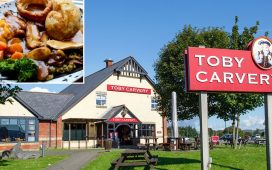People living in seats won by the UK Conservative party in last year’s general election earn on average 5 per cent less than those in areas held by the Labour opposition, according to new research.
A report released on Monday by the Levelling Up Taskforce, a new group of 40 Conservative MPs, concluded that overall wages and house prices are lower in constituencies won by the party in 2019 than in traditionally Tory areas or in seats held by Labour.
“Levelling-up” is a key part of Boris Johnson’s domestic agenda and aims to tackle long-term regional inequalities by making significant investment in infrastructure and through shifting resources out of the capital. The prime minister sees the programme as crucial for holding on to seats in the “red wall” — areas of the England traditionally represented by Labour and that heavily supported leaving the EU.
But Mr Johnson’s plans have been disrupted by the economic cost of coronavirus and the likelihood that taxes will need to be raised in the short term to pay for extra state spending during the pandemic.

Mr Johnson and chancellor Rishi Sunak have been warned by MPs representing the red wall seats that their voters may not be able to shoulder the extra burden. “This isn’t leafy Surrey. Whacking up fuel duty will really hurt our voters,” said one newly elected Tory.
Neil O’Brien, the MP for Harborough who is leading the new task force, said “the coronavirus crisis has only made the case for levelling-up stronger so we can get the economy moving in areas that are less well off. Our new task force will be spearheading this vital agenda.”
The report suggests three tests the Johnson government should adopt on whether levelling-up has been achieved. First is whether the bottom half of local authorities increase their earnings more quickly than they have in recent years.
Second is whether the bottom half of local authorities with the worst unemployment see the number of unemployed falling and converging with the national average. Third is whether employment rates in the lowest half of local authorities rise and converge with the national average.
The report also examines how London has “pulled ahead” of the rest of the UK since the mid-1990s. While the capital’s economy was the same size as that of the north of England in 2004, it is now 25 per cent bigger — the same overall value as the north, plus the cities of Edinburgh, Swansea, Belfast, Bristol and Birmingham.

The task force also highlights the high rate of inequality in Britain compared to other countries: while 12 per cent of people in Germany live in areas where income is 10 per cent below the national average, in the UK it is 35 per cent.
Jo Gideon, who won Stoke-on-Trent Central for the Conservatives for the first time at the last election, said: “There is a lot of untapped potential in parts of our country that have felt left behind for a long time. Now is the time to really hammer forward with the levelling-up agenda.”
Other notable members of the task force include: Bishop Auckland’s Dehenna Davison, Richard Holden who represents North West Durham, Simon Baynes from Clwyd South, Nicola Richards from West Bromwich East and Mark Jenkinson of Workington.













